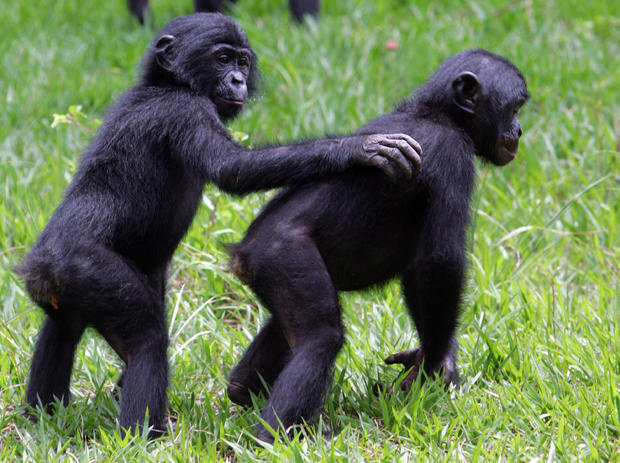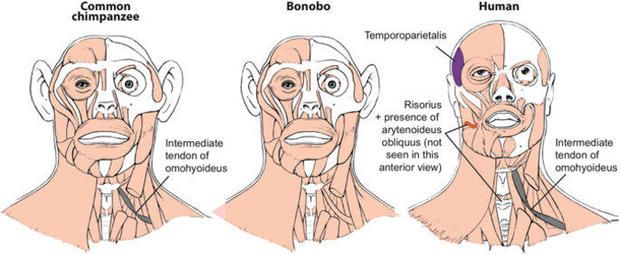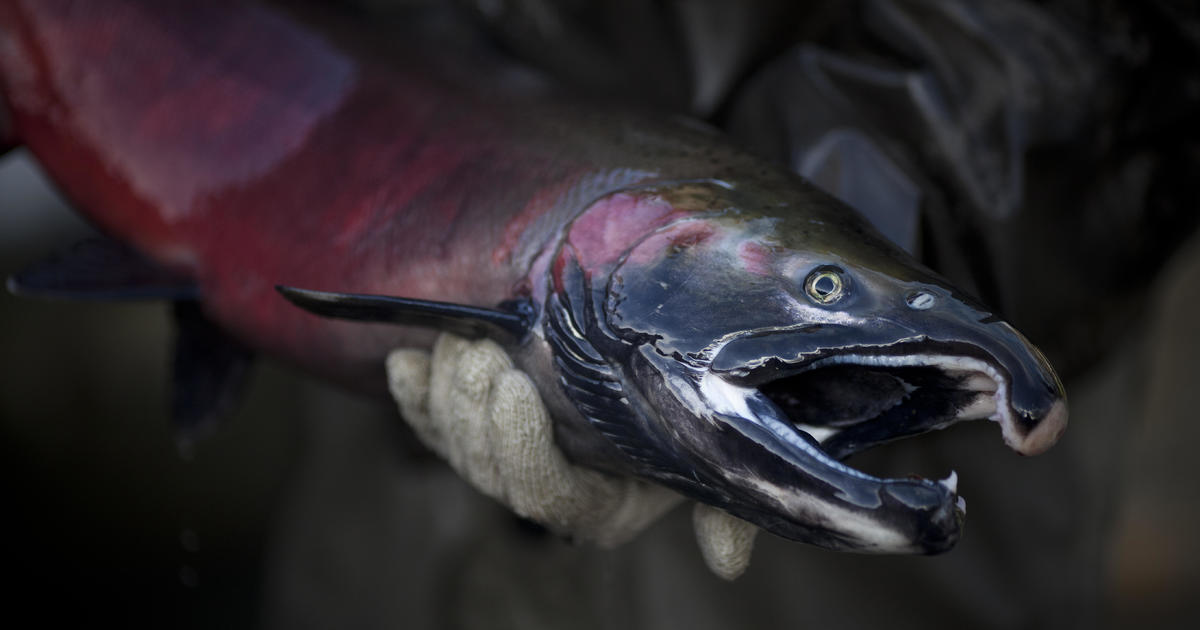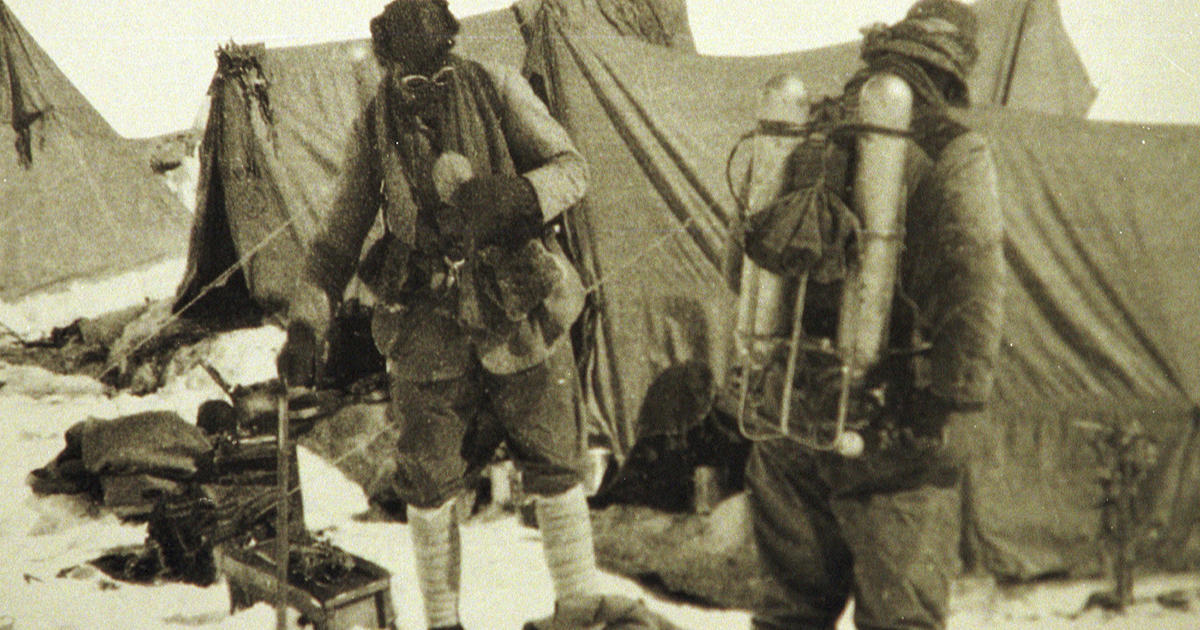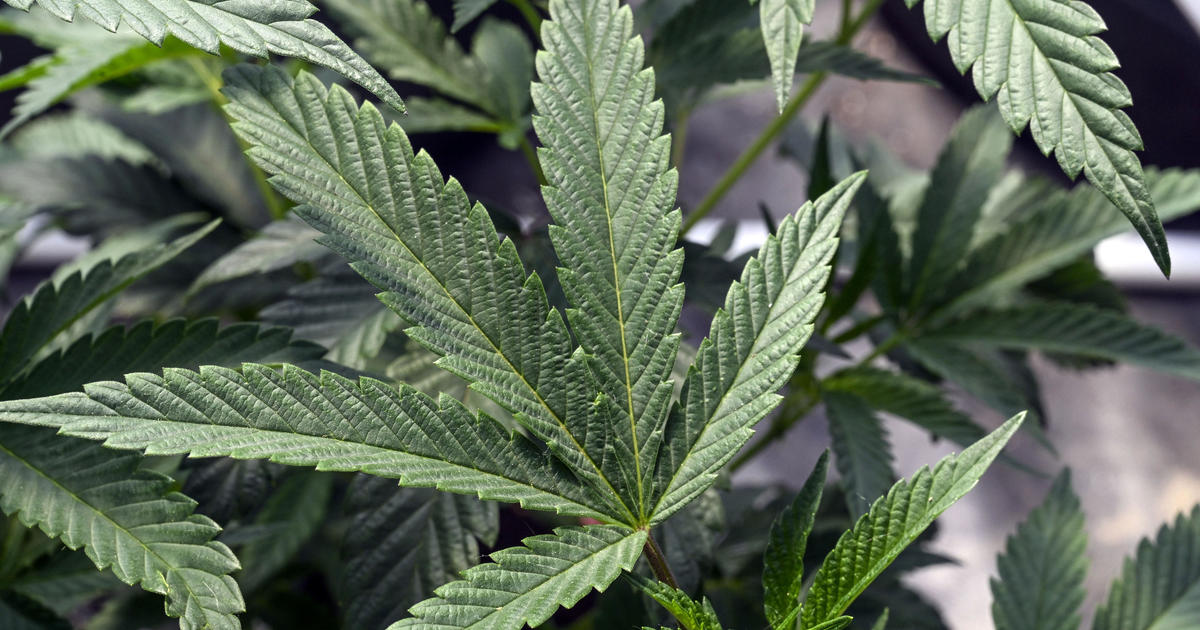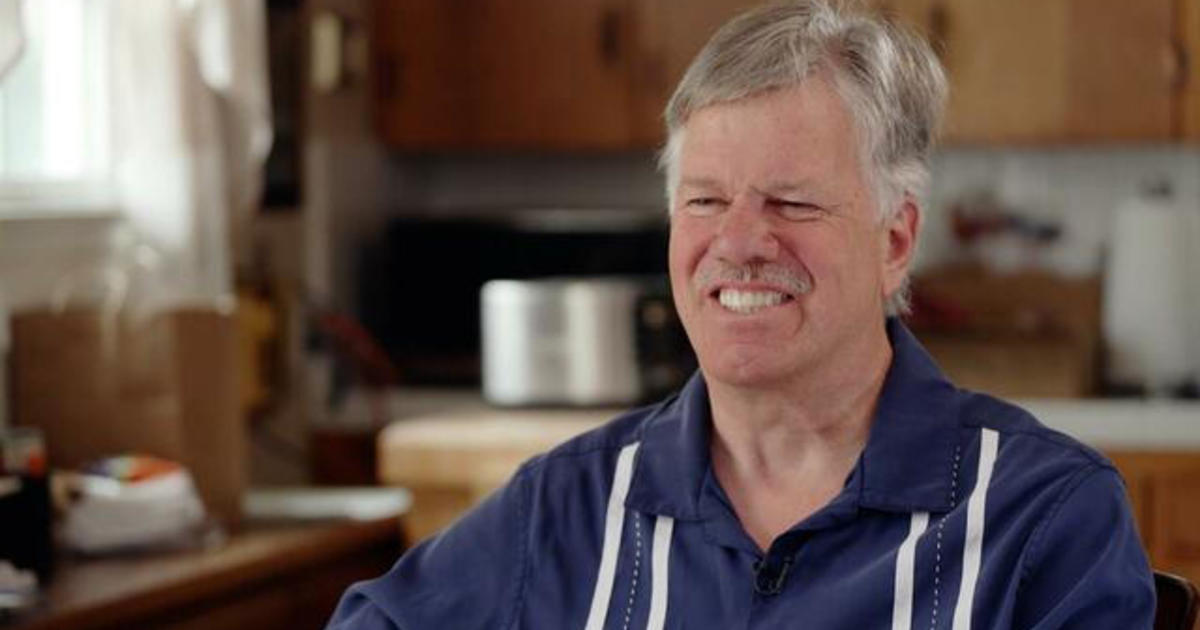Move over, chimps: Bonobos might reveal more about human ancestry
It was millions of years ago that humans, chimpanzees and bonobos split off in different evolutionary directions. Now, new research suggests that bonobos — not chimps, as widely presumed — may be the best representation of the last common ancestor between the three related species.
The research, published in the journal Scientific Reports, all started at Belgium's Antwerp Zoo, where zookeepers carefully stored the bodies of seven bonobos after they died of natural causes. An endangered species, bonobos are rare and have been in decline for the past three decades.
After learning of the existence of the cadavers, a team of researchers from Howard University and George Washington University traveled to Belgium and spent 10 days dissecting the bonobos' bodies. The team worked carefully, removing the cadavers from refrigeration only for short amounts of time to avoid damage.
"The most useful ones were the ones that were deep frozen. It's a bit like your Christmas turkey — we had to estimate how long it would take for a bonobo to defrost. And you can't put it into your sink and put hot water over it," researcher Bernard Wood, who teaches human origins at the George Washington University, told CBS News.
Scientists tend to rely on hard tissue — that is, bones and teeth — to analyze evolutionary patterns between species. But Wood believes that muscles actually provide a better lens into evolutionary history, and serve as a useful compliment to molecular evidence.
"[Bones and teeth] don't tell the whole story in terms of evolutionary patterns," Wood said. "Surprisingly, the muscles got an 'A.' They recover the branching patterns of major primate groups that you get from DNA."
Modern humans, common chimpanzees, and bonobos split in different directions on the evolutionary tree about 8 million years ago. Bonobos and chimpanzees continued along the same path for some time, then split from each other about 2 million years ago.
In dissecting the bodies, researchers found evidence of something "remarkable" about bonobos: they represent a case of "evolutionary statis," showing no developmental changes since splitting from chimpanzees.
That makes bonobos a particularly strong model for the last common ancestor between chimpanzees, bonobos and humans, researchers wrote.
"There has been a debate about whether the common chimpanzee or bonobo makes a better model," Wood said. "People said 'Wow, we know so little about bonobos, we're much better sticking with common chimpanzees.' But it's pretty clear that once you start to know things, the support for the bonobo team makes more sense."
Both bonobos and chimpanzees share 98.7 percent of genetic material with humans. But bonobos are quite distinct from chimpanzees: they are smaller, darker, and generally more peaceful. They maintain strong relationships and tend to settle conflicts through sex.
Previous research has pointed to close ties between humans and bonobos, but most of those studies focused on molecular evidence, not muscular evidence.
The scientists behind this latest report called for more research into the soft tissue of bonobos and other apes, which they called "crucial for a comprehensive and integrative understanding of the evolution and biology of chimpanzees, other apes, and primates, and ultimately of our own human lineage."
Wood expressed gratitude that the zoo had the "foresight" to preserve the bonobos' bodies and offer them up for scientific research, rather than destroy them for space and cost reasons.
"Once the [animals] die of natural causes, it seems churlish to assume they should be sent to an incinerator without the chance to reduce our ignorance about their biology," he said.
